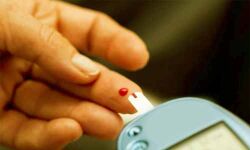- Home
- Medical news & Guidelines
- Anesthesiology
- Cardiology and CTVS
- Critical Care
- Dentistry
- Dermatology
- Diabetes and Endocrinology
- ENT
- Gastroenterology
- Medicine
- Nephrology
- Neurology
- Obstretics-Gynaecology
- Oncology
- Ophthalmology
- Orthopaedics
- Pediatrics-Neonatology
- Psychiatry
- Pulmonology
- Radiology
- Surgery
- Urology
- Laboratory Medicine
- Diet
- Nursing
- Paramedical
- Physiotherapy
- Health news
- Fact Check
- Bone Health Fact Check
- Brain Health Fact Check
- Cancer Related Fact Check
- Child Care Fact Check
- Dental and oral health fact check
- Diabetes and metabolic health fact check
- Diet and Nutrition Fact Check
- Eye and ENT Care Fact Check
- Fitness fact check
- Gut health fact check
- Heart health fact check
- Kidney health fact check
- Medical education fact check
- Men's health fact check
- Respiratory fact check
- Skin and hair care fact check
- Vaccine and Immunization fact check
- Women's health fact check
- AYUSH
- State News
- Andaman and Nicobar Islands
- Andhra Pradesh
- Arunachal Pradesh
- Assam
- Bihar
- Chandigarh
- Chattisgarh
- Dadra and Nagar Haveli
- Daman and Diu
- Delhi
- Goa
- Gujarat
- Haryana
- Himachal Pradesh
- Jammu & Kashmir
- Jharkhand
- Karnataka
- Kerala
- Ladakh
- Lakshadweep
- Madhya Pradesh
- Maharashtra
- Manipur
- Meghalaya
- Mizoram
- Nagaland
- Odisha
- Puducherry
- Punjab
- Rajasthan
- Sikkim
- Tamil Nadu
- Telangana
- Tripura
- Uttar Pradesh
- Uttrakhand
- West Bengal
- Medical Education
- Industry
Study shows mild auditory and vestibular dysfunctions in type 2 diabetes patients

Iran: A recent study has shown an association between auditory and vestibular dysfunctions and type 2 diabetes (T2D). According to the study, published in the Iranian Journal of Otorhinolaryngology, patients with T2D showed mild vestibular and auditory dysfunctions versus the healthy control group.
Diabetes is one of the most common metabolic disorders. It has affected over 220 million people worldwide and according to WHO, this number is expected to increase to 366 million by 2030. Type 2 diabetes is shown to affect auditory and vestibular systems. This relationship was frequently observed in elders. Many diabetic patients have vertigo, imbalance, oscillopsia, and gait abnormalities due to abnormal vestibular function.
Navid Nourizadeh, Mashhad University of Medical Sciences, Mashhad, Iran, and colleagues, therefore, aimed to evaluate the auditory and vestibular function of diabetic patients and compare the results with those of a healthy adult control group.
For the study, the patients were asked to complete a demographic characteristics form. The researchers also performed fasting blood sugar and hemoglobin A1C tests. Both the patients and control group were evaluated using several auditory and vestibular tests including, the video Head Impulse Test (v-HIT), Pure Tone Audiometry (PTA), ocular Vestibular Evoked Myogenic Potential (o-VEMP), and cervical Vestibular Evoked Myogenic Potential (c-VEMP).
The study revealed the following:
· The PTA showed a significant difference in some frequencies between the two groups.
· These differences were minimal in lower frequencies and become greater at 8000Hz.
· The v-HIT was abnormal for some patients and also showed a significant difference between the two groups.
· The o-VEMP and c-VEMP results were normal in most patients.
"The results of the present study suggest that there is an association between diabetes and auditory and vestibular dysfunctions," the authors wrote. "Patients with type two diabetes mellitus were suffering from mild auditory and vestibular dysfunctions compared to those in the healthy control group."
Reference:
Nourizadeh N, Jahani M, Jafarzadeh S. Auditory and Vestibular Assessment of Patients with Type Two Diabetes Mellitus: A Case-Control Study. Iran J Otorhinolaryngol. 2021;33(118):263-269. doi:10.22038/ijorl.2021.55334.2899
Dr Kamal Kant Kohli-MBBS, DTCD- a chest specialist with more than 30 years of practice and a flair for writing clinical articles, Dr Kamal Kant Kohli joined Medical Dialogues as a Chief Editor of Medical News. Besides writing articles, as an editor, he proofreads and verifies all the medical content published on Medical Dialogues including those coming from journals, studies,medical conferences,guidelines etc. Email: drkohli@medicaldialogues.in. Contact no. 011-43720751


